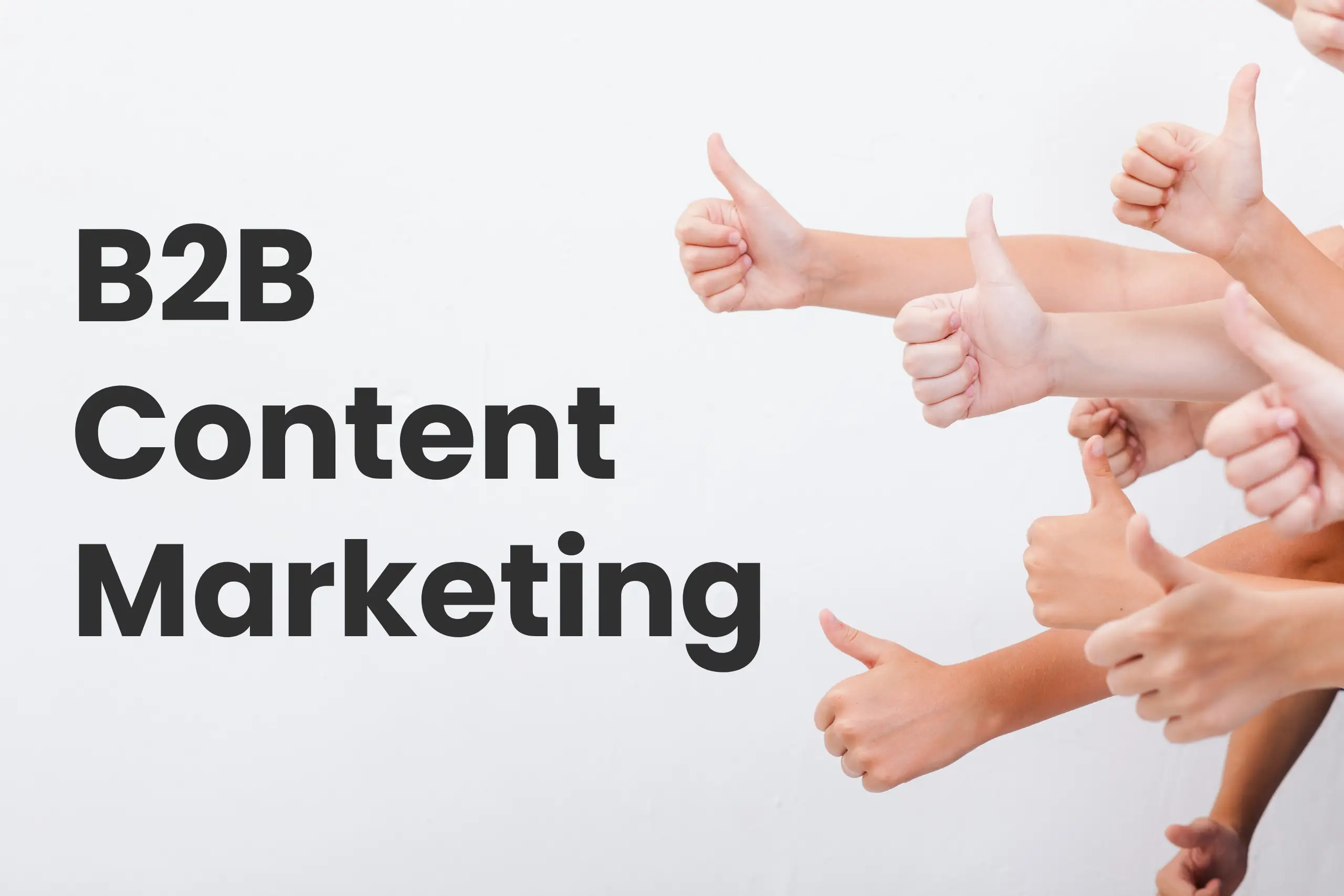Table of Contents
ToggleIn today’s hyper-competitive business landscape, B2B personalization has emerged as a game-changer. Gone are the days of generic marketing strategies and one-size-fits-all approaches. In order to stand out from the crowd and truly connect with their target audience, businesses must embrace personalized marketing tactics.
B2B personalization goes beyond simply addressing a customer by their name or including their company logo in an email. It involves tailoring every aspect of the business communication to meet the specific needs and preferences of each individual client. By customizing the content, messaging, and overall approach, businesses can create a unique and memorable experience for their customers.
The benefits of personalized B2B marketing are undeniable. It allows businesses to build stronger relationships with clients, foster trust and loyalty, and ultimately drive greater revenue growth. By understanding their customers on a deeper level and delivering tailored solutions, businesses can position themselves as trusted partners rather than faceless entities.
In this section, we will explore the various aspects of B2B personalization and delve into real-world examples of successful customized approaches. Whether you are a seasoned marketer or just starting out in the world of B2B communication, this section will provide valuable insights on how to leverage personalization for maximum impact in today’s competitive landscape. So let’s dive in and unlock the power of tailored business communication together!
The Benefits of B2B Personalization
1. Enhanced Customer Engagement and Experience
Personalization creates a profound sense of understanding. It shows that you’re not just interested in making a sale, but in genuinely comprehending and addressing the unique challenges your clients face. This fosters a deeper connection and trust, which are pivotal in building lasting B2B relationships.
2. Skyrocketing Conversion Rates
Tailored content has a profound impact on conversion rates. By directly addressing the pain points and needs of a specific business, you significantly increase the likelihood of them taking the desired action, whether it’s making a purchase, requesting further information, or committing to a partnership.
3. Maximized ROI
One of the most compelling advantages of personalized marketing is its resource efficiency. Instead of casting a wide net and hoping for the best, you’re honing in on the prospects that are most likely to convert. This laser-focused approach results in a higher return on investment.
4. Cultivation of Long-Term Customer Loyalty
Personalization lays the foundation for long-term customer loyalty. It makes your clients feel understood, valued, and appreciated. This sets the stage for repeat business and enduring partnerships, ensuring a steady and reliable stream of revenue.

Implementing B2B Personalization Strategies
1. Segmentation and Targeting
Begin by segmenting your audience based on relevant criteria such as industry, company size, location, or specific pain points. This process not only allows for more tailored content creation but also enables you to address the unique needs of each segment more effectively.
2. Harness the Power of Data
Leverage data analytics to gain deep insights into customer behavior, preferences, and engagement patterns. This invaluable information forms the basis for creating personalized content and offers. It enables you to anticipate the needs of your clients and proactively provide solutions.
3. Dynamic Content Creation
Automation tools can be a game-changer in personalized marketing. They allow you to dynamically generate content based on user behavior and preferences. This could include personalized email campaigns, landing pages, and product recommendations.
This real-time adaptability ensures that your message remains relevant and resonates with your audience, increasing the likelihood of conversion.
4. Personalized Recommendations
Leverage the power of AI-driven recommendation engines to suggest products, services, or content that align with the specific needs of each client. These recommendations are based on data-driven algorithms that analyze previous interactions and behaviors. This not only enhances the user experience but also boosts cross-selling and upselling opportunities.
5. Feedback and Continuous Improvement
Regularly seeking feedback from your clients is an integral part of personalized marketing. It allows you to fine-tune your efforts based on real-world experiences and preferences. This iterative process ensures that you’re continuously refining your approach, adapting to the evolving needs of your clients.
The Role of Data Analytics in Driving Effective B2B Personalization Efforts

In the fast-paced world of B2B marketing, the key to success lies in understanding and connecting with your clients on a profound level. This is where data analytics steps in, serving as the linchpin for effective B2B personalization efforts. In this section, we’ll explore how data analytics, with a focus on customer insights, predictive analysis, and behavior tracking, plays a pivotal role in crafting personalized B2B marketing strategies.
Understanding Data Analytics in B2B Personalization
Leveraging Customer Insights
Data analytics provides invaluable insights into the behavior, preferences, and pain points of your B2B clients. By analyzing historical data and interactions, you gain a comprehensive understanding of what matters most to your clients. This knowledge forms the cornerstone of personalized marketing strategies, allowing you to tailor your messaging and offerings to directly address their specific needs.
Predictive Analysis for Proactive Solutions
Predictive analysis takes data analytics to the next level. By leveraging sophisticated algorithms, you can forecast future behavior and trends based on historical data. In the realm of B2B personalization, this means being proactive in addressing your clients’ needs. Whether it’s anticipating product demands or providing solutions before they’re explicitly requested, predictive analysis empowers you to stay ahead of the curve.
Behavior Tracking for Real-Time Adaptability
Behavior tracking is the heartbeat of effective B2B personalization. It involves monitoring and analyzing how clients interact with your content, products, and services in real time. This granular level of insight allows for immediate adaptability. For instance, if a client shows heightened interest in a particular product line, you can respond promptly with tailored recommendations, showcasing your attentiveness and enhancing the overall customer experience.
Implementing Data-Driven Personalization Strategies
Segmentation with Precision
Data analytics enables you to segment your B2B audience with surgical precision. Instead of broad strokes, you can categorize clients based on industry, company size, purchase history, and more. This level of granularity ensures that your personalized content is hyper-relevant, resonating deeply with each segment.
Personalized Content Creation
With the insights gained through data analytics, you can craft content that speaks directly to the unique pain points and aspirations of your clients. Whether it’s bespoke email campaigns, industry-specific whitepapers, or tailored product recommendations, personalized content stands out in a sea of generic marketing.
Dynamic Content Delivery
Behavior tracking, a key component of data analytics, allows for dynamic content delivery. As clients engage with your platform, their interactions trigger real-time responses. For instance, if a client repeatedly explores a specific product category, the platform can dynamically adjust to highlight related offerings, enhancing the user experience and increasing the likelihood of conversion.
Predictive Product Recommendations
Predictive analysis takes the guesswork out of product recommendations. By understanding the buying patterns and preferences of your clients, you can proactively suggest products or services that align with their needs. This not only streamlines their decision-making process but also positions you as a trusted advisor.
Continuous Improvement through Feedback Loops
Data analytics in B2B personalization isn’t a one-time endeavor. It’s an ongoing process that thrives on feedback loops. Regularly seek input from your clients and analyze their interactions with your personalized content. This iterative approach ensures that your efforts are continuously refined and optimized for maximum impact.
Beyond Email: Exploring Other Channels for Delivering Personalized B2B Experiences
While email marketing remains a stalwart in B2B communication, the landscape of personalized experiences has expanded far beyond the confines of an inbox. In this section, we’ll delve into alternative channels that offer new dimensions for tailoring B2B interactions, with a focus on social media targeting and Account-Based Marketing (ABM).
Social Media Targeting: A Goldmine for Personalization
In the age of hyper-connectivity, social media platforms have emerged as fertile ground for B2B interactions. By leveraging the wealth of data available on platforms like LinkedIn, Twitter, and Facebook, businesses can craft highly personalized experiences.
Segmentation on Social Media
Much like in email marketing, segmentation is paramount on social media. Utilize criteria such as industry, company size, job title, and even individual interests to categorize your audience. This precision enables you to deliver content that speaks directly to the unique needs of each segment.
Tailored Content for Different Platforms
Each social media platform has its own unique dynamics. Craft content that aligns with the nature and expectations of each platform. For example, LinkedIn lends itself well to thought leadership articles and industry insights, while Twitter thrives on succinct, real-time updates.
Engagement Tracking for Fine-Tuning
Social media platforms provide a wealth of data on user interactions. Monitor likes, comments, shares, and click-through rates to gauge the effectiveness of your content. This real-time feedback loop allows for continuous refinement of your personalized social media strategy.
Account-Based Marketing (ABM): Hyper-Personalization at Scale
Account-Based Marketing is a strategic approach that zeroes in on high-value accounts, treating them as individual markets. It’s the epitome of personalized B2B experiences, tailored not just to a contact, but to an entire account and its unique dynamics.
Identifying High-Value Accounts
Leverage data analytics to pinpoint accounts that align with your ideal customer profile. Consider factors such as revenue potential, industry, and alignment with your product or service offering.
Personalized Content and Messaging
ABM requires content and messaging that resonate at an organizational level. Address the specific pain points, objectives, and challenges of the target account. This might involve creating custom landing pages, case studies, or even hosting exclusive events tailored to their needs.
Multi-Channel Engagement
ABM is not limited to one channel. It involves a coordinated effort across various touchpoints, including email, social media, webinars, and even direct mail. The goal is to create a seamless and highly personalized experience for the entire account.
Combining Channels for Synergistic Personalization
While each channel offers unique advantages, the true power of personalized B2B experiences lies in their synergy. By combining email marketing, social media targeting, and ABM, you create a multi-faceted approach that maximizes engagement and impact.
Coordination and Consistency
Ensure that your messaging across channels is cohesive and complementary. A consistent brand voice and message reinforce your credibility and reliability.
Data Integration for Holistic Insights
Integrate data from various channels to create a comprehensive view of your audience’s behavior and preferences. This holistic insight enables you to refine your personalized strategies further.
Moving Forward: Embracing the Future of B2B Personalization and Its Evolutionary Potential
In the dynamic landscape of B2B marketing, the future is brimming with exciting possibilities, especially in the realm of personalization. As we look ahead, it’s imperative to understand the trends that will shape the future of B2B personalization. This article explores the transformative potential of artificial intelligence (AI) and machine learning (ML) as they drive the evolution of personalized marketing.
The Future of B2B Personalization: Trends and Projections
Hyper-Personalization: Beyond Segmentation
The future of B2B personalization transcends traditional segmentation. It involves a level of hyper-personalization that tailors every aspect of the customer journey to individual preferences. This means not only knowing what your clients need, but also predicting their future needs and desires.
Real-Time Personalization for Instant Impact
Real-time personalization is set to become the norm. It involves dynamically adapting content and recommendations based on user behavior and preferences in the moment. This instantaneous responsiveness creates a highly engaging and relevant experience, increasing the likelihood of conversion.
Predictive Analytics for Proactive Solutions
Predictive analytics, empowered by AI and ML, will play a pivotal role. It enables businesses to anticipate the needs and behaviors of their clients before they even express them. This proactive approach sets the stage for a deeper level of trust and partnership.
Multi-Channel Orchestration for Seamless Experiences
The future lies in seamless, multi-channel experiences. Clients expect consistency and relevance across all touchpoints, whether it’s email, social media, or face-to-face interactions. The ability to orchestrate personalized experiences across these channels will be a competitive advantage.
The Pioneering Role of Artificial Intelligence (AI)
AI-Powered Customer Insights
AI excels in processing vast amounts of data to derive meaningful customer insights. It identifies patterns, preferences, and behaviors that would be impossible to discern through manual analysis. These insights form the bedrock of effective personalization.
Dynamic Content Generation
AI-driven algorithms have the capability to generate dynamic content in real-time. This means adapting messaging, offers, and recommendations based on individual interactions. It’s a game-changer for delivering relevant content at scale.
Predictive Analysis and Recommendations
AI’s predictive capabilities take personalization to a new level. By analyzing historical data and current behaviors, AI can forecast future needs and preferences. This empowers businesses to provide solutions before the client even realizes they need them.
The Evolutionary Potential of Machine Learning (ML)
Continuous Learning and Adaptation
ML models are designed to learn and adapt over time. As they’re exposed to more data, they become increasingly accurate in predicting client behavior. This continuous learning ensures that personalization efforts are always improving.
Automated Optimization of Campaigns
ML algorithms excel in optimizing marketing campaigns. They can automatically adjust targeting parameters, content choices, and delivery times based on what’s proven to be most effective. This level of automation enhances efficiency and effectiveness.
Conclusion (Of Course)
- Start small. Don’t try to personalize everything at once. Start by focusing on a few key areas, such as your website content, email marketing, or sales outreach.
- Be consistent. Personalization is not a one-time thing. You need to be consistent with your personalization efforts in order to see results.
- Use feedback to improve. Ask your customers for feedback on your personalization efforts. This feedback can help you to improve your personalization over time.
B2B Personalization is a marketing strategy that involves tailoring marketing efforts to suit the specific needs, characteristics, and preferences of individual businesses or professionals. It goes beyond generic messaging, aiming to create a more engaging and relevant communication.
B2B Personalization is crucial for enhancing customer experience, improving conversion rates, maximizing return on investment, and cultivating long-term customer loyalty. It establishes trust and credibility by showing that you understand and cater to the unique challenges of your clients.
Data is the foundation of B2B Personalization. It provides insights into customer behavior, preferences, and engagement patterns. This information is used to segment audiences, create personalized content, and make data-driven decisions to refine marketing strategies.
Segmentation criteria for B2B Personalization may include industry, company size, location, purchase history, and specific pain points. These factors help in categorizing the audience and tailoring content to suit their unique characteristics.
AI enables advanced personalization by analyzing large datasets to derive meaningful customer insights. It powers dynamic content generation, predictive analysis for proactive solutions, and automated optimization of marketing campaigns.
Some emerging trends in B2B Personalization include hyper-personalization, real-time personalization, predictive analytics for proactive solutions, and multi-channel orchestration for seamless experiences.
B2B Personalization can significantly impact conversion rates by directly addressing the pain points and needs of a specific business. Tailored content is more likely to lead to conversions as it resonates more deeply with the audience.
Account-Based Marketing (ABM) is a strategic approach that focuses on high-value accounts, treating them as individual markets. It involves hyper-personalization at scale, addressing the specific pain points, objectives, and challenges of the target account. ABM is an advanced form of B2B Personalization.
Effectiveness can be measured through metrics such as click-through rates, conversion rates, customer retention, and customer satisfaction scores. Additionally, tracking customer engagement and behavior on various channels provides valuable insights.
Best practices for implementing B2B Personalization include thorough data analysis, continuous feedback loops, dynamic content creation, and leveraging technology like AI and automation tools. It’s also essential to maintain a consistent brand voice and message across all channels.



